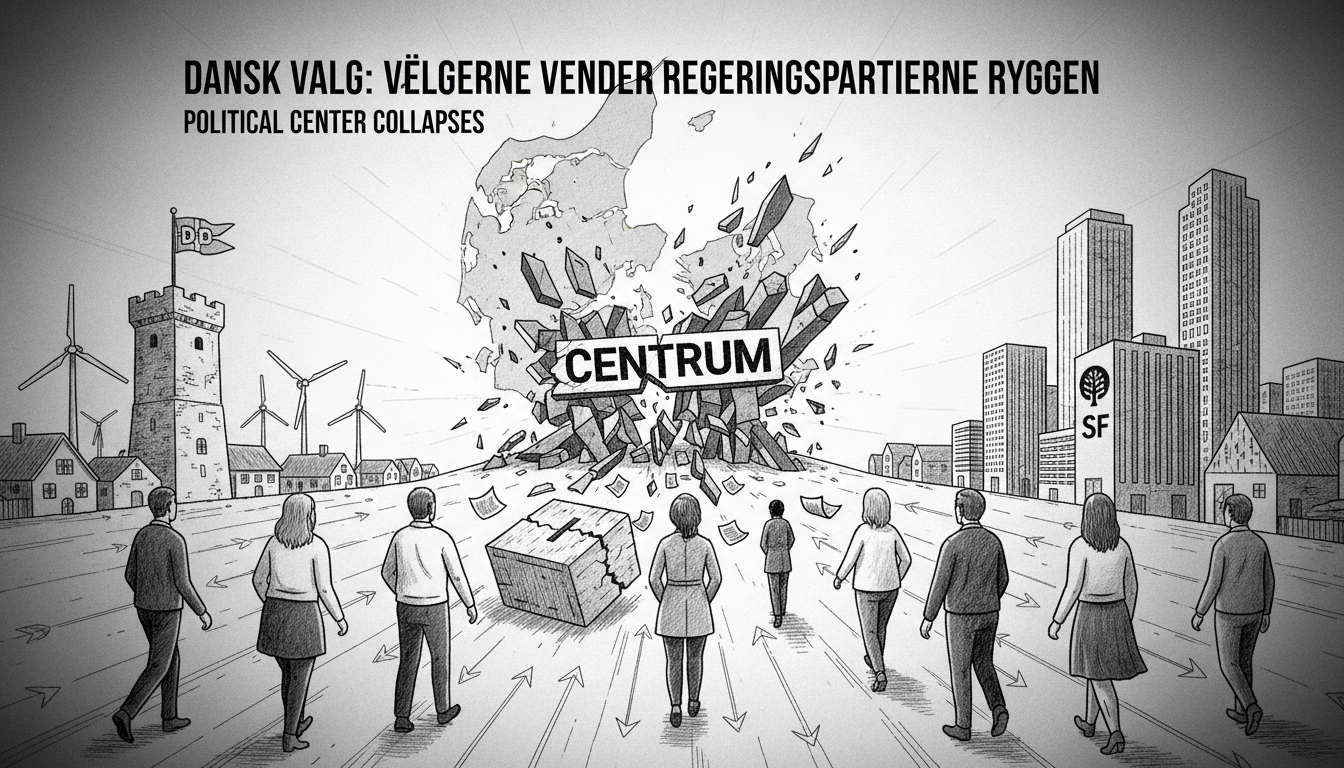Danish voters delivered a sharp rebuke to the governing coalition parties in recent municipal elections, with both the Social Democrats and Venstre suffering significant losses. The political center appears to be collapsing as voters shift toward more clearly defined alternatives on both flanks.
The Social Democrats fell to 23.2 percent of votes nationwide, a decline of 5.2 percentage points since the last comparable election. Venstre dropped to 17.9 percent, losing 3.3 percentage points. This represents a combined loss of 8.5 percentage points for the two main government parties.
Denmark's political landscape is undergoing a fundamental realignment. Voters are no longer rewarding the traditional power parties in the same way they once did. The bonus effect of holding power has evaporated as people seek clearer political positions rather than stability.
Two parties emerged as the main beneficiaries of this shift. The Denmark Democrats, led by Inger Støjberg, made substantial gains in rural areas, particularly in traditional Venstre strongholds. The party captured 22.3 percent of votes in Lemvig and 16.2 percent in Lolland without fielding particularly experienced or well-known candidates.
Meanwhile, the Socialist People's Party (SF) gained ground in university cities and urban centers. The party benefited from remaining outside the current government coalition between Social Democrats, Venstre, and the Moderates.
The symbolic significance of these results cannot be overstated. The Denmark Democrats' Mads Fuglede took the mayor's position in Ringkøbing-Skjern, a traditional Venstre bastion. In Copenhagen, SF's Sisse Marie Welling emerged as the frontrunner for the powerful mayor position.
Prime Minister Mette Frederiksen acknowledged the poor results for her party. She admitted that governing comes with costs. It becomes increasingly difficult to be the large Danish people's party that must embrace all Danes, she told reporters during the election night event in Copenhagen.
The Social Democrats suffered particularly dramatic declines in several key municipalities. The party lost 31.3 percentage points in Frederikshavn, 20.6 points in Lolland, 17.9 points in Holstebro, and 13.9 points in Brøndby.
Marie Stærke, the Social Democrats' deputy leader, lost her position as mayor of Køge and quickly resigned from the post. There is no doubt that the Social Democrats have received something of a jaw-rattling, she said, describing the impact of the election results.
For the first time since the municipal reform of 2007, the Social Democrats no longer have representation in every Danish municipality. The party failed to win seats on Fanø and Læsø, signaling the dissolution of its role as the all-embracing people's party.
The election results show clear geographic patterns. The Denmark Democrats gained strength primarily in rural Jutland, while SF advanced in university cities. Both governing parties lost support across urban and rural areas, among both highly educated and lower-income voters.
Venstre suffered its most significant losses of mayor positions on Zealand, including in Ringsted, Faxe, and Lejre. However, the party will likely take control of important municipalities like Fredericia, Frederikshavn, Holstebro, Kolding, and Køge.
Political fragmentation is accelerating in Denmark. Voters are moving away from the government parties and toward more clearly profiled alternatives on both flanks. In rural Jutland, Venstre is losing its historical status as the obvious choice to the Denmark Democrats. In university cities, SF harvests the benefits of remaining outside the government cooperation.
The outcome represents not an earthquake but a cold scaling away of support. When the center cracks, voters do not move in flocks but in fragments. The traditional power parties face a new reality where their broad appeal is diminishing.
These local election results send a clear message to Christiansborg just as Denmark approaches a parliamentary election year. Many former voters still struggle to understand the meaning behind the current government alliance between Social Democrats, Venstre, and Moderates. Governing responsibility clearly wears on both credibility and party profiles, especially when traditional opponents join in a center government.
If a similar decline repeats in the next parliamentary election, it would become extremely difficult for Mette Frederiksen to continue as prime minister. The Social Democrats have now received multiple warnings about their declining support, and this latest result suggests the trend is accelerating rather than stabilizing.

